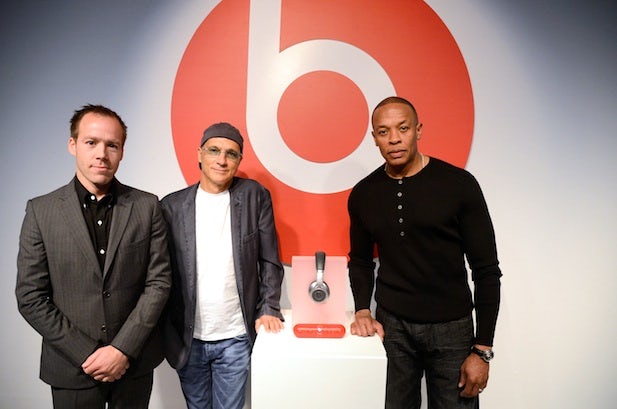Q&A: Beats by Dr Dre
Marketing Week speaks to Beats by Dr Dre president Luke Wood about the audio brand’s strategy to become synonymous with the UK’s creative scene.

Marketing Week (MW): The Beats brand has come a long way since it launched in 2008. How have you used marketing to achieve this success in such a short space of time?
Luke Wood (LW): It’s really been down to us focusing on telling people about how great these headphones sound. We really try to stay true to this fundamental and simple mission. I’m from a generation where my stereo system was my identity and as a listener you could really connect with the sound of an artist. This current generation has no experience of that so when Dre and Jimmy came along with Beats they were able to use their connections in the music industry to take this message to the masses. All of the emphasis that we put on integrating the brand in authentic places like music videos helps tell this story because these people have a lot of credibility. It’s rare for a premium brand to have such a large number of young customers and I believe this relationship approach to marketing and using brand ambassadors has been a key factor.
MW: 2012 feels like the year the brand really achieved mainstream appeal around the world. From a marketing standpoint what has happened this year to spark this shift?
LW: We come from the music business and to us marketing Beats is the same way we would market our artists. It comes back to us getting that message about the headphones’ sound quality out there in any way we possibly can. We’re starting to see a real convergence of people hearing about the brand from their friends combined with seeing the brand used by their favourite artist or football player. I think when you’re talking about why we’re getting real cut-through in mainstream culture this year, it’s because of us achieving that viral effect of people just talking about the brand more.
MW: How will you build on this strong following next year?
LW: I think as the brand grows and our presence grows we’ll do a lot more with local repertoires in different markets, particularly in the UK, which is just as important to North America for us. It’s why we’re staffing a marketing team here in the UK and is part of our wider ambition to be associated with global culture. It doesn’t matter whether its in design, street art, sport or graphics, some of these people will go on to become so influential that we want to be associated with them as pioneers of sound. We don’t know who or where they’re going to be because everything we do in our marketing is done from our gut. But if something interesting is happening in the UK or anywhere else in the world then we want to be a part of it. Whoever the next Banksy is, we want them to be wearing a pair of Beats.
MW: Beats is seen as a young and cool brand. Why risk denting that equity with the launch of a product for older consumers with the launch of the Executive headphones?
LW: With the Executive we’re saying that sound is for everyone and that we want as may people as possible to hear great music. We wanted to make sure that we had a product that fit in line with people who wanted something that was really just about bespoke materials and craftsmanship. The design is a little bit subtler than our other ranges. As a brand we don’t worry about the risk this could have on how people perceive us because we really viscerally believe that we have to bet on our own judgment and ourselves. It’s an approach that has led us to achieving three-digit growth to date in all the markets we’re available in.
MW: Since the brand launched four years ago, rival companies have looked to tap into the burgeoning premium headphone space with their own artist endorsed ranges. How do you stay ahead of rivals in what is fast becoming a very competitive market?
LW: There are some [brands] that have fundamentally missed the point moving into this space. The point of Beats and Dr Dre is that he is a sound pioneer. What Dr Dre did with the Chronic was invent a whole new type of hip-hop. Before Dre hip-hop had a great sound, but it was a dirty, street, sampled sound. Dre came in and fundamentally changed hip-hop and R&B forever. That’s Dre. He’s a sound pioneer. From a brand USP standpoint how do you compare that to anything else? It gives us a priceless credibility in the audio space that we can really leverage to create a 360-music experience for people.






